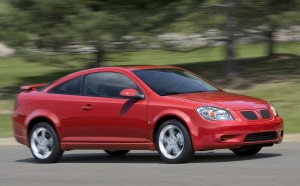As the results for U.S. new vehicle sales in June trickle in, it’s clear that the hoped for rebound in sales isn’t happening to any great degree. Manufacturers are responding with a variety of gimmicks in an attempt to clean out 2009 models and pave the way for what is hoped to be a better 2010 model year that starts in the fall.
Yesterday, Hyundai announced a new incentive program that will let owners buy gas at $1.49 for a full year. General Motors has weighed in with a 72-Hour sale that offers new zero-percent reduced-rate financing for up to 72 months to well-qualified buyers on select GM vehicles. The GM program looks to be absolutely conventional automotive marketing: Eligible vehicles must be in dealer stock, and include Chevrolet Silverado and GMC Sierra regular, extended and crew cab light-duty pickups; Chevrolet Suburban and GMC Yukon XL SUVs — all large, fuel guzzling trucks that buyers have been shunning.
Other eligible GM vehicles include the final Pontiacs before its official demise this August — the Vibe, G3, G5, G6 and G8. Although not part of the 72-Hour Sale, many other vehicles will have reduced rate financing of zero-percent for up to 60 months for well-qualified buyers.
Virtually all makers are prompting vehicles that meet the criteria under the new Federal CARS (Car Allowance Rebate System) “Cash for Clunkers” program. GM, for example, has 74 different models – twice as many as any other auto manufacturer – that may qualify.
Toyota has 15 available car, truck, SUV and hybrid models, and Scion’s entire lineup of vehicles qualifies.
The sales incentive picture is complicated by the nascent CARS recycling program, which in theory starts today. However, since the government hasn’t finalized the rules for how the trade-in program will be administered, it would be foolish for people who are potentially eligible for up to $4,500 in credits for the trade-in of an old car to buy before the rules are published on about July 23rd.
Whether a new vehicle sale and trade-in transaction qualifies for an incentive under CARS depends, among other things, on the type of vehicle the customer is trading in; and the increase in EPA estimated combined fuel economy ratings resulting from the purchase of the new vehicle.


